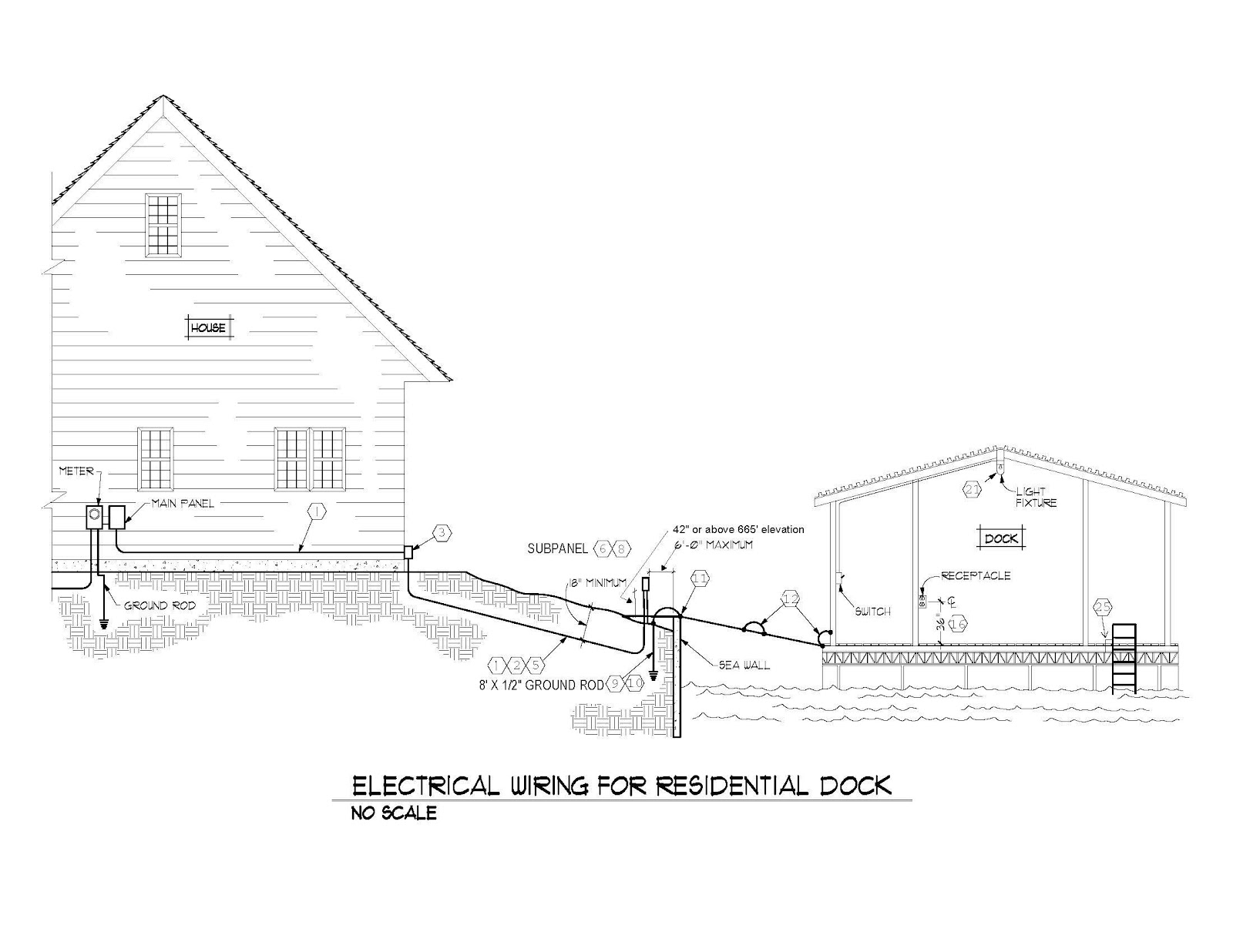Electrifying Your Waterfront: The Ultimate Guide to Boat Dock Electrical Systems
Imagine stepping onto your boat dock, the sun setting, and your favorite music playing softly from outdoor speakers. This idyllic scene is made possible by a reliable boat dock electrical system. But setting up power on the water isn't as simple as plugging in a lamp. It requires careful planning, specialized equipment, and adherence to strict safety regulations.
Dockside power supplies open up a world of possibilities for enhancing your waterfront experience. From illuminating pathways for safe nighttime navigation to powering lifts and winches, electricity on your dock adds convenience, safety, and enjoyment. This comprehensive guide will delve into the intricacies of boat dock electrical wiring, exploring everything from the basic components to advanced installation techniques.
Historically, boat docks were simple structures, offering little more than a place to tie up a boat. As boats became more sophisticated, so did the need for dockside amenities. The demand for electricity on docks grew with the advent of electric boat lifts, battery chargers, and other power-hungry devices. This evolution led to the development of specialized marine-grade electrical components designed to withstand the harsh waterfront environment.
A correctly installed boat dock electrical setup is paramount for safety and functionality. Water and electricity are a dangerous mix, making proper grounding and GFCI protection crucial. Neglecting these safety measures can lead to electric shock, equipment damage, and even fire. Understanding the specific requirements for marine electrical installations is vital to prevent these hazards.
Before embarking on any electrical work, it's essential to understand the terminology. A Ground Fault Circuit Interrupter (GFCI) is a safety device that shuts off power in the event of a ground fault, preventing electrical shocks. Marine-grade wiring and components are designed to resist corrosion and moisture, ensuring durability and longevity in the marine environment. Understanding these basic concepts is the first step towards a safe and functional dockside electrical system.
One significant benefit of a powered dock is the ability to conveniently charge boat batteries. No more hauling batteries back and forth or relying on noisy generators. Another advantage is enhanced safety through dock lighting, making nighttime navigation much easier. Finally, having power available allows for the use of other amenities, such as water pumps, refrigerators, and entertainment systems, transforming your dock into a comfortable and functional extension of your home.
Planning your electrical system involves determining your power needs, selecting appropriate wiring and components, and obtaining necessary permits. Consulting with a qualified marine electrician is highly recommended to ensure compliance with local codes and safety regulations. They can help you create a tailored plan that meets your specific requirements.
Advantages and Disadvantages of Boat Dock Electrical Installation
| Advantages | Disadvantages |
|---|---|
| Convenience (charging, lighting, appliances) | Cost of installation and maintenance |
| Enhanced safety (dock lighting) | Risk of electrical hazards if improperly installed |
| Increased property value | Potential environmental impact |
Best practices include using marine-grade wiring and components, installing GFCI protection on all circuits, and ensuring proper grounding. Regular inspections and maintenance are also essential to ensure the ongoing safety and reliability of your dock electrical system. Consult local regulations regarding permits and inspections.
While professional installation is recommended, understanding the basics can help you oversee the project effectively. Ensure the electrician uses marine-grade wiring, GFCI outlets, and waterproof junction boxes. Verify that the system is properly grounded and that all connections are secure and weatherproof.
Several challenges can arise during boat dock electrical projects. Corrosion is a constant threat in the marine environment, requiring the use of corrosion-resistant materials. Fluctuating water levels can also pose a problem, necessitating flexible wiring and waterproof connections. Addressing these challenges proactively ensures a durable and reliable electrical system.
Common questions about dock electrical systems include: What type of wiring should I use? What size breaker do I need? Do I need a permit? What safety precautions should I take? Consulting with a qualified electrician will provide answers tailored to your specific situation and local regulations.
In conclusion, a properly installed boat dock electrical system enhances safety, convenience, and enjoyment of your waterfront property. While the process requires careful planning and adherence to safety guidelines, the benefits are well worth the effort. By understanding the key considerations and seeking professional guidance when needed, you can create a functional and safe electrical system that will power your waterfront lifestyle for years to come. Don't hesitate to contact a qualified marine electrician to start planning your dockside electrical project today! Ensure you research local regulations and get necessary permits before starting any electrical work. Your safety and the longevity of your installation depend on it.
Saint michael archangel tattoos a powerful symbol
Drawing adorable disney characters a simple guide
Dc green lantern ring deep dive power lore and more














